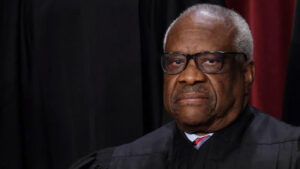Expert Sends a Strong Warning to Americans, Reveals Trump’s Condition Since Conviction
According to a report by Salon on Saturday, June 8, 2024, this week, there has been a great deal of chatter over conflicting opinions on the extent to which Donald Trump does, or does not, aim to seek revenge on the numerous individuals who, in his eyes, have perhaps helped to land him in the sorry legal state he’s currently in.
On Thursday, Kellyanne Conway told Fox News viewers that the concept of Trump going after revenge and vengeance for what led him to his hush money trial conviction is “the new narrative by all the lemmings in the mainstream media,” implying that he does not, in fact, want those things.
However, in an interview with Dr. Phil McGraw that aired that same day, Trump himself contradicted this notion.
“Revenge does take time.
And sometimes revenge can be justified, Phil.
I have to be honest.
Sometimes it can,” Trump said, within the topic of his legal woes.
This admission has only fueled the ongoing debate about Trump’s true intentions.
New York Times correspondent and CNN analyst Maggie Haberman weighed in on this back-and-forth regarding Trump’s “revenge” issue during a conversation with host Phil Mattingly on Friday’s edition of CNN’s The Lead. Haberman’s analysis suggests that while Trump may be publicly downplaying his desire for retribution, his behind-the-scenes actions and rhetoric tell a different story.
“There’s a difference between being upset about the outcome of a case and saying, therefore, I’m going to go after everybody,” Haberman said. “Trump might be tempering, somewhat, his language publicly, but he is very focused on this behind the scenes.
He does want to see retribution. He is not in a happy place.” Trump’s legal troubles have been mounting, with the hush money trial being just one of several high-profile cases. His legal battles have clearly taken a toll on him, and his recent comments to Dr. Phil underscore his lingering animosity towards those he holds responsible.
This sentiment was echoed by Haberman, who noted that Trump’s focus on retribution is indicative of his current state of mind. The conflicting narratives presented by Conway and Trump himself highlight the complexity of his situation. While Conway attempts to downplay the notion of revenge, Trump’s own words suggest otherwise.
This discrepancy raises questions about the internal dynamics within Trump’s camp and the strategies being employed to manage his public image. Trump’s admission to Dr. Phil that he believes revenge can sometimes be justified adds another layer to the conversation. It reveals a side of Trump that is deeply affected by his legal struggles and willing to entertain the idea of retribution as a form of justice.
This revelation aligns with Haberman’s assessment that Trump is “not in a happy place,” indicating that his legal battles are having a profound impact on his emotional state. As the legal proceedings continue, the tension between public statements and private intentions will likely remain a focal point.








